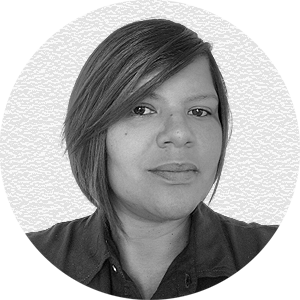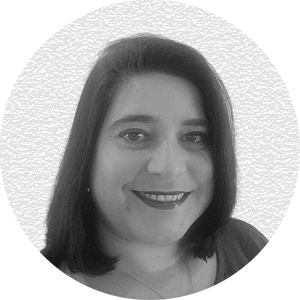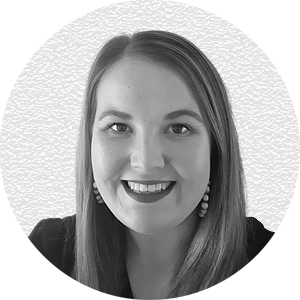As part of a leading African university, we believe that multilingualism really matters. It’s about so much more than just being able to use multiple languages. It’s about giving people a voice, regardless of the language they use. It’s about recognising the value of what is said, whether it’s said in English, Afrikaans, isiXhosa or South African Sign Language. It’s about celebrating our country’s diversity and allowing us to connect in ways we otherwise couldn’t.
But what happens when communication is complicated because there are too many languages on the table? That’s where we come in.
The Stellenbosch University Language Centre’s Interpreting Service offers real-time educational interpreting, conference interpreting and South African Sign Language interpreting to bridge the gap between languages.
Sometimes you might want to use interpreting not because you have to, but because you love hearing or seeing your language and want to use it. That’s a good enough reason to use interpreting.
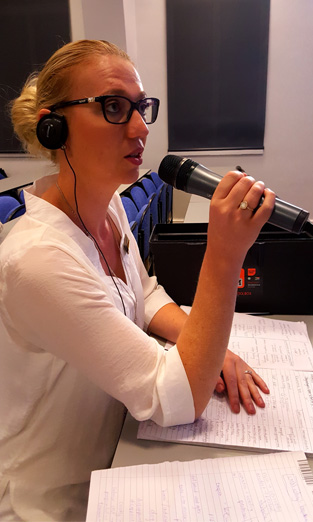 Educational interpreting
Educational interpreting
Our dedicated team of interpreters receive expert training in the modules they interpret.
The University promotes a learning-centred approach to teaching that focuses on learning as a partnership, where students are co-creators of knowledge and learning environments. We partner with the faculties to make sure that you have access to valuable lecture content in either Afrikaans or English and also offer isiXhosa and South African Sign Language interpreting in certain modules.
If you don’t have an interpreter in your classroom, talk to your lecturer about your faculty’s approach to language, or contact us at tolkinfo@sun.ac.za.
What are the benefits of this interpreting service?
- You have more language options. The Interpreting Service can help you bridge the gap from matric to university by making sure you receive information in the language of your choice – English, Afrikaans, isiXhosa or South African Sign Language.
- During lectures, you can make notes in the language in which you write tests by hearing it in the classroom, instead of having to translate your notes yourself.
- You can form part of an integrated academic community, because students are not divided into different language groups so everyone can be part of the same class.
- You can take part in multilingual group discussions. The interaction between students can be interpreted, which can enhance group cohesion.
- Listening to interpreting in class can give you access to terminology in more than one language and help you to communicate better in your multilingual workplace later on.
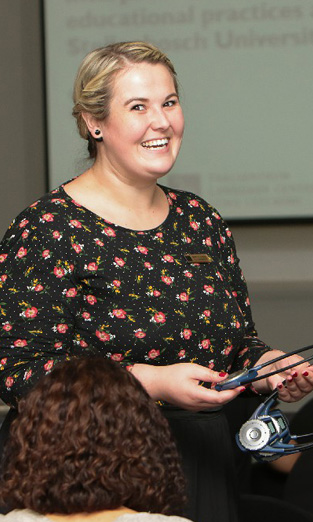 Conference interpreting
Conference interpreting
Molo. Goeiemôre. Good morning. When we’re greeted in our own language, we feel more at home.
Choosing a multilingual approach to your conference or meeting will make speakers and participants feel more confident, happy and engaged. We offer a professional and mobile simultaneous interpreting service to SU and local municipalities for council meetings, board meetings, ministerial affairs, company events, annual general meetings, and more.
We mostly provide this service in Afrikaans, English, isiXhosa and South African Sign Language, but other language combinations are possible as well.
How and why does the Interpreting Service stand out?
We have our own equipment and it’s mobile
There’s no set up required, so interpreting can be done anywhere, anytime, for a group of any size.
We can interpret online meetings and conferences
We can work remotely through various online platforms.
Our interpreters are experts in various fields
Our interpreters all have at least five years’ experience in working in various fields, including agriculture, natural science, law, military sciences, medical and health sciences, economics and management sciences, education, and humanities and social sciences.
Why should you use an interpreter for your conference or meeting?
People feel more valued and heard when they can use and encounter their language of choice. This allows them to become co-creators of knowledge and transforms the environment into a space where each person can have a personal experience. In addition to interpreting the main speakers, we can interpret question-and-answer sessions between role-players. You’d be amazed at how well a multilingual group can interact with our help. Don’t default to English.
It’s best to book your interpreters well in advance, but if necessary, we can provide an interpreter within 24 hours at an additional charge.
What are our prices?
We can tailor-make an interpreting package that works for you. The price will be influenced by the number of interpreters required, the duration of the event, as well as the number of language combinations.
For more information, to get a quote, or to book interpreters, please contact Nanette Nortje.
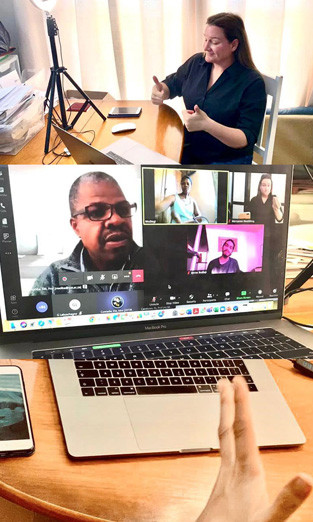 South African Sign Language Interpreting (SASLI)
South African Sign Language Interpreting (SASLI)
Many people assume that there’s one universal sign language – but signed languages are unique to each country and even to communities. At the SU Language Centre, we acknowledge and celebrate the rich diversity of South African Sign Language dialects and strive to include the Deaf community in broader society by means of effective communication through South African Sign Language (SASL) interpreting.
What do we currently do on campus with South African Sign Language interpreting?
Presently our three interpreters support Deaf students in the Faculty of Education and four Deaf staff members in various environments.
Educational interpreting into and from SASL involves interpreting lectures, tutorials, practicals, meetings with lecturers, notes, tests and exams. We want our Deaf students to be able to participate in student life and to be well-balanced Matie students, so we offer interpreting for social events and doctor’s appointments, for example, and we facilitate a host of personal interpreting needs that the students might have.
Aside from interpreting the classes of Deaf lecturers, our interpreters assist Deaf staff members in a variety of settings where they experience communication barriers, such as staff meetings, workshops, seminars, postgraduate studies and e-mail communication.
How and why does the Interpreting Service for SASL stand out?
Our interpreters are experts
They’re adaptable, reliable and responsible and can be counted on to deliver a professional service regardless of the setting. Together they have over 40 years’ worth of experience (and they aren’t even that old)!
We can work remotely
We can interpret remotely through various online platforms.
We develop and record terminology alongside the Deaf community
We view our relationship with our SU staff and students as a partnership. That’s why we develop new terminology in consultation with them. We apply strict quality control to our interpreting so that our clients don’t lose any sleep over communication access and inclusion.
We care about effective communication for all
We are connected to the broader community out there. We stay in touch with, mentor and support other local interpreters and we collaborate with tertiary institutions and Deaf organisations nationwide. We strive to make tertiary studies, varsity life and society in general accessible for SASL users that are within our reach.
When should you arrange a SASL interpreter for your event?
The SASL interpreting service is available for conferences, events and meetings where Deaf speakers or attendees are confirmed.
If you’re organising an event and require SASL interpreting, or if you’re Deaf and require interpreting for an event, contact Nanette Nortje to discuss your needs.
What are we currently doing in Stellenbosch and surrounds?
We try to serve the local Deaf Community by providing community service interpreting as needed. The community service interpreting we offer ranges from legal interpreting in cooperation with the SU Legal Aid Clinic, interpreting for Horizon House in Stellenbosch and the interpreting of events such as doctor’s appointments.
For more information or to request a South African Sign Language interpreter, please contact Nanette Nortje.
Meet our team
This post is also available in: English

